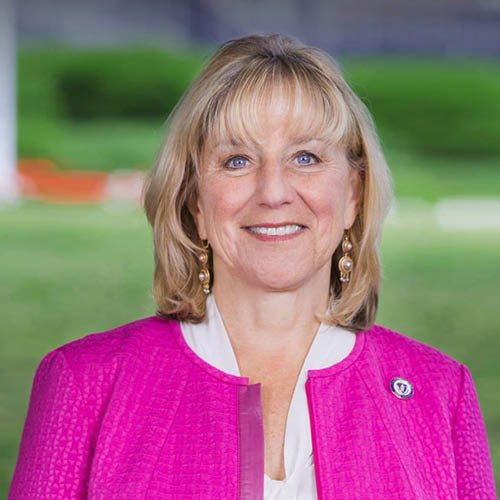State Senate unveils sweeping police reform bill, plans to pass it this week

Victoria McGrane | Boston Globe | July 6, 2020
The Massachusetts state Senate on Monday unveiled sweeping police reform legislation, which would create a new independent entity to certify officers, and place new limits on use of force by law enforcement, among other elements its authors say are designed to increase accountability and fight systemic racism.
Senate President Karen E. Spilka said her chamber is approaching the need for police reform effort with “urgency” and would take up the bill Thursday. She and other senators described the bill as a direct response to protesters who marched at rallies around the state demanding racial justice and policing reforms.
“The time for action is now. We must seize this moment,” Spilka said at a news conference on the State House steps.
“Today’s bill represents the first step in rethinking what public safety should look like,” said Senator Sonia Chang-Díaz of Boston, one of the bill’s authors and the only Senate member of the Massachusetts Black and Latino Legislative Caucus. “It prioritizes de-escalation, prevention and care, and rejects — anywhere that it exists — a culture of aggressive force and impunity in law enforcement, and it begins to transfer power to the community.”
The authors said they incorporated many of the policy proposals contained in two measures previously introduced by Governor Charlie Baker: a bill Baker introduced last month that would create the first certification system for Massachusetts police officers in state history, and a set of changes he put forward in January targeting long-running corruption and cultural problems at the State Police.
But the Senate bill goes further than Baker’s proposals, and includes provisions that range from placing a moratorium on the use of facial recognition technology to making it easier to expunge the criminal records of young offenders.
Of particular note, the bill proposes a host of new restrictions on the methods and materials police can use. The Senate bill would ban choke holds in all circumstances. Officers would be barred from using other types of deadly force, such as firing a gun at a fleeing motor vehicle, except in situations where the officer or another person may suffer imminent harm without the officer’s action.
The bill would curtail law enforcement’s use of “tear gas or other chemical weapons, rubber pellets or dogs” to control individuals or crowds, according to a summary of the bill. Police departments would have to seek civilian approval — for instance, from the relevant municipal legislative body, and only after a public hearing — to purchase or accept grants of military-grade equipment.
The bill also would create a legal duty for officers to intervene if they see a colleague using excessive force.
It would also scale back the use of so-called “qualified immunity” under state law, a legal doctrine that often shields individual officers from legal claims of brutality or other misconduct.
While state lawmakers can’t directly change how the doctrine is applied at the federal level, they can curtail its application under state law. That’s what the Senate bill seeks to do by creating a higher bar for immunity: An officer’s action would only get immunity if “no reasonable defendant could have reason to believe that such conduct would violate the law,” according to a summary of the bill.
“You have to use your common sense now. You’re not going to be shielded by a doctrine that goes too far in the other direction,” shielding any action that isn’t spelled out as illegal, said Senator William N. Brownsberger, a member of the working group that drafted the bill.
Rahsaan Hall, director of the Racial Justice Program for the American Civil Liberties Union of Massachusetts, called the bill’s qualified immunity language “significant” and a change that “must be enacted.”
The senators expressed confidence that the Legislature could get a bill to Baker’s desk by the end of the month, when the body’s formal session is set to end. House Speaker Robert A. DeLeo has previously indicated the House would introduce its own police reform legislation, but full details haven’t been announced.
Any differences between the future House bill and what the Senate passes would have to be worked out between the two chambers, a process that often moves slowly.
“Where there’s a will, there’s a way on Beacon Hill,” said Chang-Díaz.
“The House remains concentrated on passing a bill that can be signed into law in a timely fashion,” DeLeo said in a statement to The Boston Globe, referring to his announcement last month articulating the broad goals of the police reform legislation that he worked out with Representative Carlos González, the chairman of the Massachusetts Black and Latino Legislative Caucus.
DeLeo said he plans to release details of the House package “in the coming week.”
When it comes to police certification, the Senate bill incorporates many of the details in Baker’s bill, including what violations would cost an officer his or her certification. One big difference: The Senate bill does not include monetary bonuses of up to $5,000 for officers to undertake additional training, a provision in Baker’s bill that stirred controversy.
The Senate bill also gives the Police Officer Standards and Accreditation Committee subpoena power, while also allowing citizens to submit complaints directly to the body, rather than requiring them to come from police departments only. Residents would be able to look up more information about individual police officers via a searchable online database than provided by the governor’s bill.
It remains to be seen whether the sweeping changes to police tactics will encounter resistance from the law enforcement community. Requests for comment from law enforcement advocates were not returned Monday.
In an interview with the Globe, Spilka said that the Senate bill was crafted with input from law enforcement. “We tried to balance the factors to put clear parameters on the use” of force by law enforcement, she said.
Leaders from both the New England Area Conference of the NAACP and the American Civil Liberties Union of Massachusetts endorsed the Senate bill at the Monday news conference.
